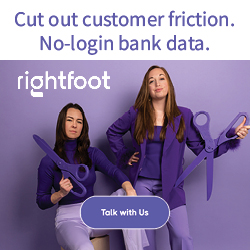When Your Competitors Do Wrong, Do Right
 “…no matter what industry you’re in there’s always going to be bad apples, and you kind of have to see which way they’re coming from,” said Heather Francis, CEO at Elevate Funding.
“…no matter what industry you’re in there’s always going to be bad apples, and you kind of have to see which way they’re coming from,” said Heather Francis, CEO at Elevate Funding.
Competition within this industry will always exist, fueling the drive of professionals in the field. But how can one compete with a competitor who is actively deceiving the merchant? Furthermore, how can one advise that client to exercise due diligence without appearing to display dishonest intentions? Transparency has become a rising issue separating those in the field for the right reasons from those who are not.
“Companies should be dedicated to conducting their business consistent with the highest standards of ethics and integrity,” said Laura M. Marolla, VP ISO Relations at World Business Lenders (WBL). “We have an obligation to our colleagues, customers, business partners and investors, as well as the communities in which we operate to be honest and forthright in all our business practices and interactions.”
Funding and lending companies working with customers should be forthright about everything, from the amount the customer will receive, the total cost, and what they should expect throughout the relationship. Also they should be consistent with the terminology used so that the customer doesn’t become confused.
Francis explained that terms like “fee” could be interpreted in several different ways. Her company has developed an entire blog dedicated to terminology to help merchants weed out jargon.
“Terminology is very very important because I could understand fee to mean one thing and you could understand it to be different,” said Francis. “And that’s not transparent if we’re speaking a different language, that can be misconstrued.”
Case in point, Francis’s company Elevate offers Revenue-based financing while Marolla at WBL offers loans. On this basis alone, each company’s product works very differently.
“Ongoing education for all staff should be required, during which responsible lending practices should be emphasized and ingrained into the culture of the organization,” said Marolla. “While in the end, each merchant must take responsibility for its business decisions, informed decisions by merchants can be facilitated through transparency in disclosures and responsible business practices throughout the lending process.”
And if a competitor is not being transparent or responsible, Francis said that there is a delicate way to communicate that to the customer.
“From our team, what we do if a merchant says, ‘hey, so and so promised me X, Y, and Z,’ if there are reviews out there that show the other company can’t deliver that, we will send them the link. ‘You can see what previous customers have said, and it seems like they haven’t always been true to their word.’ We can also give the client something to look out for.”
One particular thing she said can be a red flag is if a company tells the customer at the last minute that they’re going to get a lot less than what they originally contracted for, which they have seen happen. Elevate hopes that when a customer recognizes a warning sign that they will remember Elevate’s polite manner of advising them what to have looked out for in the first place.
Francis explained it’s about making them feel free to come back to them, that there’s no hard feelings if it looks like they got a better deal. “‘If you have any questions. If you don’t feel that the person is being truthful with you, we’re happy to answer any questions, or you can bounce ideas off of us,'” is the message they try to leave them with. “We’re just trying to have a relationship so that we can curtail someone who’s lying about what they’re doing.”
Last modified: June 1, 2023






























